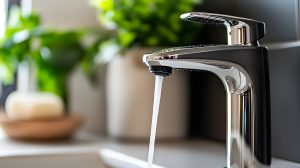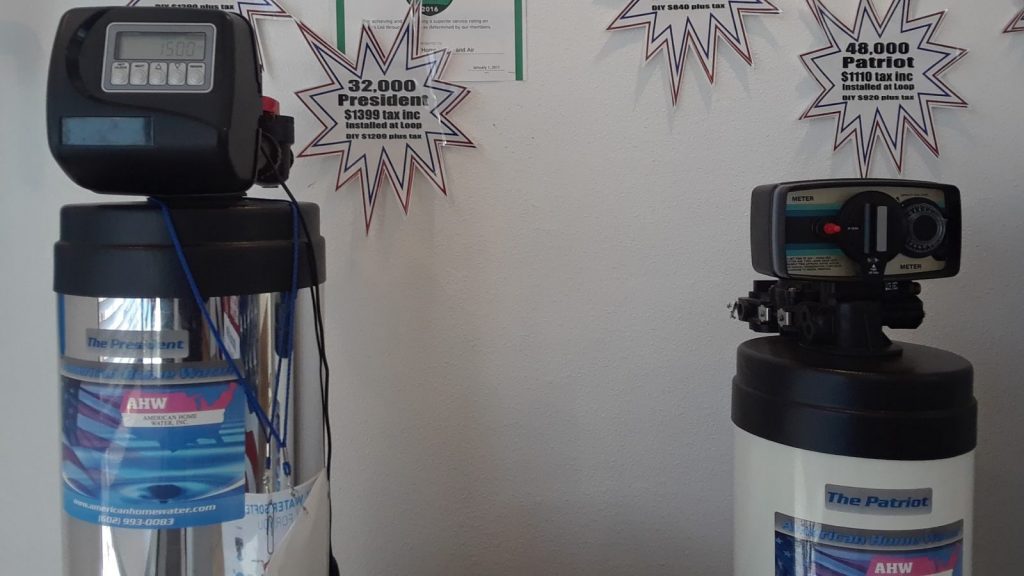Hard water in our homes can be quite problematic. Right from reacting with cleaning products, causing soap buildups, to degrading your home’s plumbing systems and other appliances, it’s a mess when not corrected. Luckily with water softeners, all these problems can be a thing of the past.
But, what if you are dealing with well water? Is the water softener for well water similar to that used in softening municipal water? And if not, how do the prices compare?
Whether for municipal or well water, what matters is the mineral content in that water. So, the type and cost of the water softener will depend on what minerals you are dealing with and the level of concentration.
To help us get a clear picture of the cost of water softener systems for well water, let’s explore some facts together.
The Cost of Water Softener System for Well Water
The cost of installing a water softener for well water in your home depends on various factors. This means that there’s no single standard price for well water softeners. Some of the factors used to categorize the cost of water softeners include the mineral content in water, type, and brand of the water softener, capacity, and efficiency of the unit, etc.
Let’s dive in and see how these factors will affect the cost of installing a new water softener for your well water.
Well Water Softener Price by Type
Different types of whole house water softeners will attract varying costs. These are average cost estimates for the five most popular water softeners for your well water.
| Type of Water Softener | Cost Range (Including Installation) |
| Salt-based Iron Exchangers | $800 – $2000 |
| Salt-free Softeners | $800 – $4000 |
| Electronic Descalers | $200 – $600 |
| Water Distillers | $50 – $2000 |
| Reverse Osmosis | $1000 – $2800 |
- Salt-Based Ion Exchangers
These are the most popular, affordable, and reliable water softener types in the market. And while some people tend to avoid using salt in softeners, salt-free softeners tend just to conceal the damage eventually caused by the hard water. As for the cost, the systems’ ROI (return on investment) is faster, based on their efficiency and effectiveness in removing water hardness.
These water softeners remove calcium and magnesium concentrate from water, leaving it soft and suitable for consumption and other home uses. They use an “ion exchange” process, which substitutes the hardness-causing minerals with common salt (sodium chloride).
Depending on the size of your place, the purchase and installation of this device will cost you between $800 and $2000.
- Salt-Free Potassium Well Water Softeners
Unlike the Ion Exchanger Softeners, which use Sodium chloride, salt-free water softeners use potassium to neutralize calcium and magnesium concentrations in your water.
Typically, Potassium does not remove the elements. Rather, it neutralizes the ions and prevents their build-up as water flows along with your plumbing. However, they will still accumulate in regions where water is stagnant.
This will cost you between $800 and $4000. They are considerably expensive than salt-based softeners. Also, they are ideal for septic tanks and safe for low-sodium diet people and the environment.
- Electronic Descalers
This is the most wallet-friendly way of dealing with your well’s water hardness problem. Instead of using water softening media like salt and resin, this process uses electric pulses created by an electric unit wrapped around the waterline to treat your hard water.
The electric pulses work the same way as the TAC resin beads in a salt-free water softener—concealing the hardness-causing metals and preventing them from sticking onto your plumbing. This will cost you between $200 and $600 to install.
- Water Distillers
Water distillers are also categorized as water softener systems. These devices use heat to separate pure water from the hard minerals and heavy metal distillates. It creates water vapor at temperatures near boiling point to separate the elements.
While they are easy to install, water distillers don’t tackle all chemical hardness and are considerably slower. This makes them ideal only for drinking water. You’ll part with around $50 to $2000 to have one in your house.
- Reverse Osmosis Filters
While a whole house reverse osmosis system isn’t necessarily a water softener, it’s still a perfect solution for your hard water problem. The system, which will cost you between $1000 and $2800 to install, uses several filtration stages to filter and treat the water. This includes a reverse osmosis filtration media, from where it gets its name.
Only the smallest water elements can pass through the media, blocking and flashing away the rest of the particles, including calcium and magnesium. They cost less than some water softeners, and they do much more than just water softening.
Other Factors Affecting the Cost of Well Water Softener
When choosing the best water softener for well water, there is more to consider than simply the type and process of water softening. Here are the other factors that will influence the cost of that installation.
- Size
Harder water means more work in softening it. This translates to a larger water softener.
In addition, the desired water flow rate will determine the size of a softener you install. If you want to maintain enough pressure to allow the shower, washing machine, kitchen faucets, etc., to work simultaneously, you need a bigger unit.
The bigger the size, the more money you’re likely to spend.
- Features
While you don’t need an overly complex water softener, some features are necessary and might raise the cost of that water softener. For instance, a digital control head on a softener will allow easy monitoring and configuration.
In addition, a metered system regenerating as per previous water conditions is desirable. This is because it alters the amount of softening media, based on mineral saturation. The more features a device offer, the pricier it is likely to be.
- Brand
Brands will charge different prices based on popularity and trust among customers. However, some brands will overprice their products, even when they have similar features to those of much cheaper brands.
Before you commit to buying a water softener for your well water, do enough comparisons. This will help you to determine if the features the brand offers are worth the price, or it’s just the brand name they are selling.














